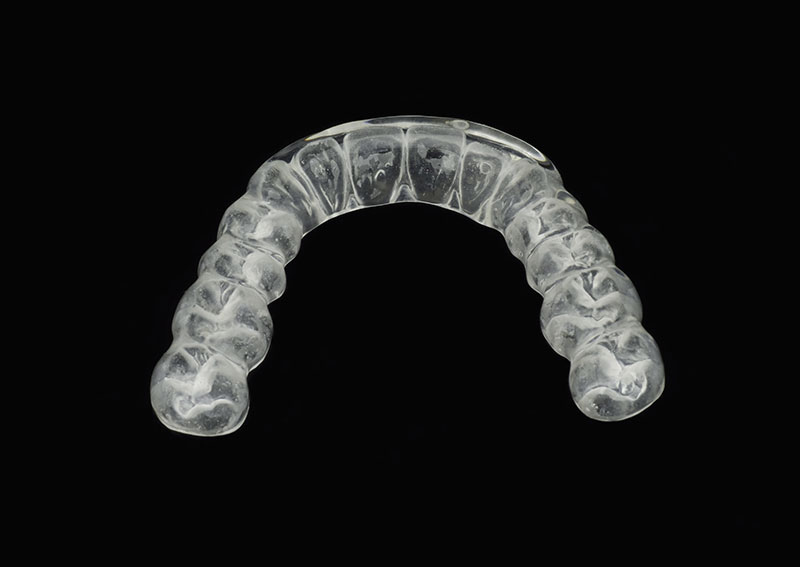Nightguards are used to help protect your teeth from the wear and damage caused by common clenching or grinding habits. The term for these habits is called “bruxism” and is thought to occur in up to 30% of the population. These habits often happen at night as a form of sleep movement disorder and are involuntary. Clenching is when the jaws bite down hard against each other, and grinding is when the jaws move back and forth on each other. Both of these habits can lead to teeth and jaw problems over time.
Signs & Symptoms of Bruxism
- Soreness/ tenderness in the jaw
- Jaw clicking/locking/popping while opening or closing
- Sore muscles in the cheeks, head or neck
- Sensitive teeth
- Wear spots on the biting surfaces of the teeth
- Gum recession (usually on the back surfaces of the teeth)
- Headaches
How Night Guards Work
Nightguards help to protect your teeth by taking the pressure and strain away from the teeth and jaw and placing it on the guard. The night guard acts as a cushion between the upper and lower teeth to absorb force. Nightguards can be fabricated to fit on either the top or bottom teeth and can be made from various plastics ranging from soft to hard.
How Nightguards are Made
A night guard is made professionally in a dental office/ dental lab. The first step is to have impressions taken of your teeth (both upper and lower.) Next, the impressions are used to make a replica of your teeth and jaw with a plaster model. Once the plaster model is created and set, a machine is used to mould the plastic guard material around the model, which will give an exact fit for your mouth. The night guard will be tried in and adjusted for comfort and fit if needed.
Important Info
- Make sure to wear your night guard every night in order to get the best protection.
- Clean your night guard every morning with a separate toothbrush and warm running water, and store it in your night guard case
- Don’t use hot water on your night guard as this may warp the material.
- If you notice your night guard is beginning to crack, chip or break, the guard will no longer be offering the best protection, and it’s time to have a new guard made.
If you think you could benefit from a nightguard, or have any questions about them, contact us today to schedule an appointment.

